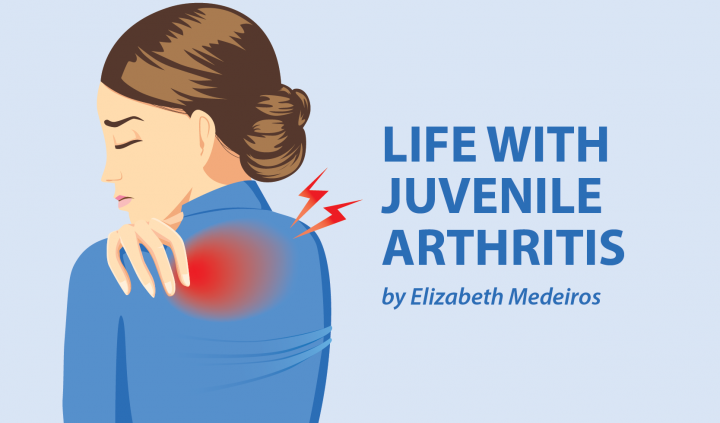It was nearing the end of the semester, and I came home from seventh grade in tears. That wasn’t unusual in the hard year of coping with juvenile arthritis (JA) and the constant doctor appointments, ill feelings from side effects, and bullying about how puffy the medications made me. It all compacted into a heavy emotional burden to carry.
On that particular day, I found out the photographer came to take yearbook pictures while I was at a rheumatologist appointment. Even though I knew it wasn’t the end of the world, it felt like it. It felt like JA was taking everything away from me. I was so sick of being sick.
Overwhelmed
A noted symptom of JA is irritability, which can come from not feeling well and not getting enough sleep. I know from experience that the emotional toll of chronic pain doesn’t end there. Kids already deal with so much — from academic pressure to peer pressure — and having a chronic illness makes it even more difficult. There may be days when they seem very irritable, withdrawn, or miserable.
It can be hard to function and keep emotions in check when in pain. As an adult still dealing with juvenile-onset arthritis, I know first-hand how overwhelming enduring a day can be. Being in pain, feeling exhausted, and not being able to rest comfortably can cause an adult to want to break down — never mind a child or teen.
What makes it worse is when pain and exhaustion cause brain fog. For me, brain fog can make it hard to process my emotions and cope with stress. It can make an already difficult situation more overwhelming because I’m having a hard time working through my feelings. It can cause me to overreact to a small problem.
Learning to cope
Parents, it’s essential to keep in mind that pain affects your child’s attitude. Your child is learning to cope with chronic pain and it may take a while to find what works. The fluctuating nature of JA can be especially challenging; things may be fine for weeks, and then an awful flare comes out of the blue.
Does that mean you should never discipline a child with JA? Of course not. Kids need to behave, even when they don’t feel well. But I do recommend being discerning and compassionate. Just like everyone else, children will have bad days; JA means they might have them more often.
It’s important to teach healthy coping mechanisms. Resting quietly, journaling, taking a bath, reading a book, meditating, or taking a moment to count your blessings are all great ways to help calm down. On bad days, direct them to positive, quiet activities or rest. Kids need your guidance.
They also sometimes may need to cry or rant. Whether it’s to you, an older sibling, a friend, or a therapist, make sure your child has someone with whom to talk. They don’t need someone to solve their problems; they want someone who will listen empathetically.
Teenagers and young adults
As your child ages, it’s essential to watch for the signs of depression and anxiety common among preteens and teens with JA and to get them the proper help. Many people with chronic pain benefit from an understanding counselor.
I’ve always relied on my mum for support. She would find age-appropriate ways to help me work through the tears and the pain: from the baths I got to “wash away the grumpies” when I was young, to the long talks we had in the car, to bringing me to therapy when it became too much to handle at home. Knowing I could always turn to her for support has had a profoundly positive impact on my life.
Even as a young adult, I have my bad days. I’m still learning how to deal with the emotional toll of my pain as my needs and situation change. The challenges of JA can be overwhelming, but finding healthy ways to cope helps me move forward.
***
Note: Juvenile Arthritis News is strictly a news and information website about the disease. It does not provide medical advice, diagnosis, or treatment. This content is not intended to be a substitute for professional medical advice, diagnosis, or treatment. Always seek the advice of your physician or other qualified health provider with any questions you may have regarding a medical condition. Never disregard professional medical advice or delay in seeking it because of something you have read on this website. The opinions expressed in this column are not those of Juvenile Arthritis News, or its parent company, BioNews Services, and are intended to spark discussion about issues pertaining to juvenile arthritis.

